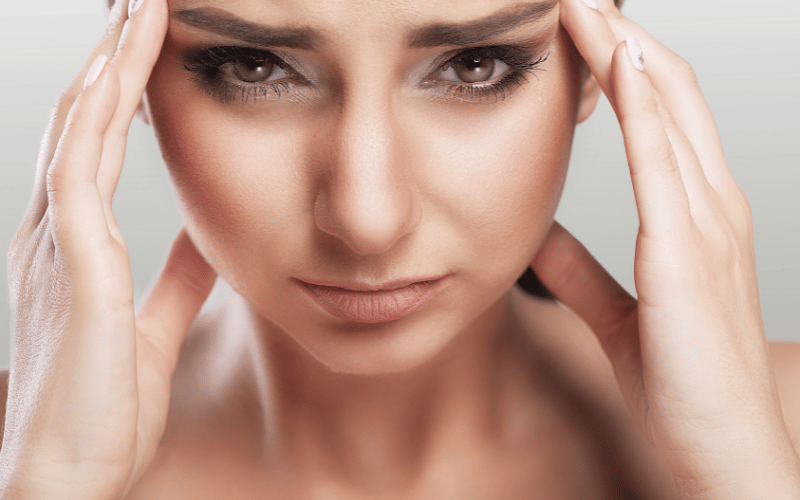6. Chronic Headaches: The Ache That Persists

Chronic headaches, especially upon waking, are a common symptom for those suffering from bruxism. But why does this connection exist?
The strain from repeatedly clenching and grinding one’s teeth throughout the night puts substantial stress on the temporomandibular joint (TMJ) and surrounding muscles. This continuous tension is often felt in the temples, but can spread throughout the head.
The aftermath of these headaches isn’t restricted to mere physical discomfort. The regularity and intensity of these headaches can be debilitating, impacting an individual’s mood, daily productivity, and overall life quality.
Prolonged suffering can lead to other issues such as irritability, depression, and concentration problems. Over time, it can significantly reduce one’s quality of life, making tasks that once seemed simple feel herculean.
While bruxism is a leading cause of morning headaches, it’s essential to differentiate them from others. Tension-type headaches, migraines, or even sinusitis can have overlapping symptoms. Consulting a healthcare professional can help ascertain if bruxism is the true underlying cause, thus guiding appropriate treatment measures.
Breaking free from this symptom requires a twofold approach. Firstly, addressing the physical act of grinding can alleviate the immediate cause of the headache.
This can be achieved through dental interventions, mouth guards, or even specific exercises. Secondly, looking into underlying causes, like stress or anxiety, and addressing them can provide long-term relief. (6)